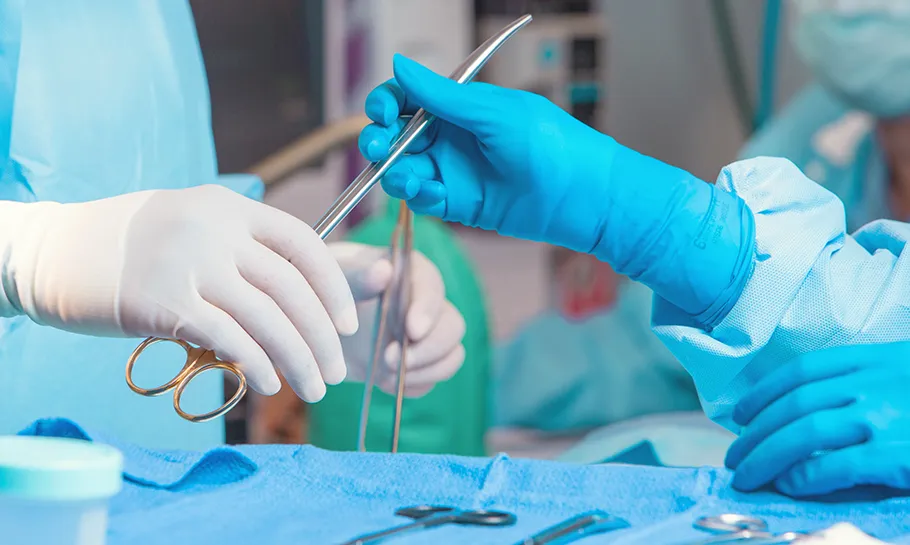General Surgery

General Surgery
General surgery is a broad field of medicine that focuses on a variety of surgical procedures aimed at treating conditions affecting the abdominal organs, soft tissues, and endocrine system. Surgeons specializing in general surgery use both traditional and minimally invasive techniques to diagnose, treat, and manage various health issues.
General surgery is a specialized field of medicine that involves a wide variety of procedures aimed at treating various conditions affecting the body. It encompasses surgeries that deal with the abdomen, digestive system, thyroid, skin, soft tissues, and more.
What is General Surgery?
Common General Surgery Procedures
General surgeons perform a variety of procedures based on the patient’s medical needs. Some of a most common general surgery procedures include:
- Appendectomy: An appendectomy is the removal of the appendix, typically due to appendicitis (inflammation of the appendix). This is a common emergency surgery and can be performed through traditional open surgery or minimally invasive laparoscopic techniques.
- Gallbladder Removal (Cholecystectomy): The removal of the gallbladder is often required in cases of gallstones, infections, or other gallbladder-related disorders. Laparoscopic gallbladder removal is a minimally invasive procedure that requires only small incisions.
- Hernia Repair: A hernia occurs when an organ or tissue pushes through a weakened area of muscle. General surgeons repair inguinal, umbilical, and ventral hernias, often using minimally invasive techniques for quicker recovery and reduced scarring.
- Bowel Surgery: General surgeons are often called upon to treat conditions affecting the intestines, such as colorectal cancer, Crohn’s disease, and diverticulitis. Bowel resections and stoma procedures are commonly performed to treat these conditions.
- Breast Surgery: General surgeons perform surgeries related to breast health, including lumpectomies, mastectomies, and biopsies, often for the diagnosis or treatment of breast cancer.
- Thyroid and Parathyroid Surgery: Surgeons may perform surgery to remove part or all of the thyroid gland, often in cases of thyroid cancer, hyperthyroidism, or benign growths. Parathyroid surgery may also be necessary to address issues such as hyperparathyroidism.
- Skin and Soft Tissue Surgery: General surgeons perform procedures to remove cysts, lipomas (fatty tumors), and other benign growths from the skin and soft tissues. These surgeries are typically straightforward and minimally invasive.
Benefits of General Surgery
- Treats a Wide Range of Conditions: General surgery is designed to treat a diverse array of health conditions, from acute illnesses like appendicitis to chronic conditions such as hernias or gallbladder disease.
- Minimally Invasive Options: Many general surgery procedures can now be performed using minimally invasive techniques, like laparoscopic or robotic surgery, which require smaller incisions, result in less pain, and promote faster recovery.
- Improved Quality of Life: General surgery procedures are often essential for relieving chronic symptoms, such as pain, gastrointestinal issues, or hormone imbalances, and improving overall quality of life.
- Quick Recovery: With advancements in minimally invasive techniques, patients typically experience shorter hospital stays and a quicker return to normal activities.
- Prevention of Serious Health Problems: Surgery is often necessary to address conditions that, if left untreated, could worsen or lead to serious complications. For example, an untreated gallstone can cause severe pain or lead to infection, while an undiagnosed hernia may become incarcerated or strangulated.
The General Surgery Procedure: What to Expect
- Pre-Surgery Preparation: Before the surgery, you may undergo imaging tests, blood work, and a physical exam to ensure you are a good candidate for surgery. Your surgeon will also discuss the risks and benefits of the procedure with you and explain how to prepare.
- Anesthesia: Depending on the surgery, general anesthesia or local anesthesia with sedation may be used. In most cases, you will be asleep and pain-free throughout the procedure.
- The Surgical Process: During the surgery, your surgeon will make the necessary incisions to access the affected area. For minimally invasive procedures, small incisions are made, and instruments are inserted to treat the condition. For open surgeries, a larger incision may be needed to perform the procedure.
- Post-Surgery Care: After surgery, you will be monitored in a recovery room before being transferred to a hospital room or sent home. Pain management, wound care, and instructions for recovery will be provided.
Recovery After General Surgery
- Hospital Stay: Depending on the procedure, you may need to stay in the hospital for observation, usually for a day or two.
- Post-Surgical Pain: It’s common to experience some pain, swelling, and bruising around the incision sites. Pain medication or over-the-counter medications will help manage any discomfort.
- Follow-Up Appointments: You will be scheduled for follow-up appointments to check on your recovery progress, monitor for any complications, and remove sutures if necessary.
- Return to Normal Activities: The time needed for recovery will depend on the surgery performed. For example, a laparoscopic gallbladder removal may allow you to return to work within a week, while more invasive surgeries like bowel resection may require several weeks of recovery time.
Risks and Considerations of General Surgery
Although general surgery is typically safe, like any surgical procedure, it does carry some risks. Some potential risks include:
- Infection: There is always a risk of infection at the incision site.
- Bleeding: Some bleeding may occur during and after the procedure.
- Anesthesia Risks: Although rare, there are risks associated with anesthesia, such as allergic reactions or complications from pre-existing conditions.
- Organ Damage: In some cases, surrounding organs or tissues can be accidentally injured during surgery.
